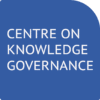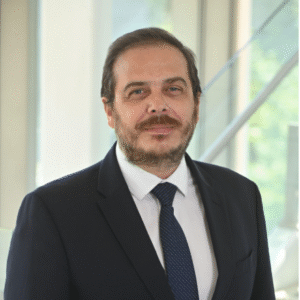The World Intellectual Property Organization’s General Assembly finished the opening statements of Member States and is now moving toward its substantive work. This note includes quotes of some of the opening statements on key issues facing the General Assembly and in WIPO’s work head.
Support SCCR work on Broadcast and L&E Instruments
With the conclusion of two treaties this year – on disclosure of genetic resources in patents and, on design law – the focus on WIPO’s norm setting is shifting to the Standing Committee on Copyright and Related Rights (SCCR). A key issue in the past several General Assemblies has involved whether to recommend that the current draft treaty be the subject of a diplomatic conference, and if so, whether it will be linked with progress toward an instrument in the lng-stalled limitations and exceptions agenda. The work on Broadcasting is guided by decisions of the GA in 2006 and 2007, calling for “agreement on objectives, specific scope and object of protection” (WO/GA/34/16) on a draft text “confined to the protection of broadcasting and cablecasting organizations in the traditional sense” and “based on a signal-based approach” (WO/GA/33/10, para 107, 2006). The work on limitations and exceptions is guided by the 2012 decision of the GA to work toward an “appropriate international legal instrument or instruments (whether model law, joint recommendation, treaty and/or other forms)” on uses by libraries, archives, museums, educational and research institutions, and persons with other disabilities (WO/GA/41/14).
Broadcast
Denmark, on behalf of the EU
“WIPO can count on the continued and active engagement of the EU and its Member States in strengthening the normative agenda of WIPO’s work. We are committed and support moving towards the prompt conclusion of a broadcasting organizations treaty.”
Estonia, on behalf of CEBS
“We would express our strong support for the timely conclusion of the broadcasting organizations treaty.”
India
“India remains hopeful for meaningful progress on all pending issues including finalization of a balance[d] Treaty on the protection of broadcasting organizations.”
Trinidad and Tobago
“We remain committed to working as well towards a broadcasting treaty.”
Hungary
“We stand ready to support work towards the adoption of the broadcasting treaty.”
Australia
“Australia continues to support working towards the Treaty on the Protection of broadcasting organizations”
France
“We are attached to the key role of the organization in supporting creative economies and the work of the Standing Committees, particularly when it comes to developing a broadcasting treaty.”
Philippines
“The Philippines encourages discussions on the proposed Treaty on the Protection of Broadcasting Organizations and strongly supports SCCRs in its endeavors. To recall, the preparatory process was initiated in 1997 in a symposium in Manila. Meanwhile, advances in technologies have generated more piracy, illegal signals and irresponsible use of artificial intelligence. IP protection needs to outpace these advances.”
Italy
“The WIPO normative agenda includes the negotiation for a treaty dedicated to broadcasting organizations. Italy supports the adoption of an effective anti-piracy instrument aimed at enhancing the international protection of broadcasting organizations IP content, and thereby contributing to strengthening the principle of territorial exclusivity, which plays a crucial role in securing financing for IP content’s development and distribution.”
Finland
“In the SCCR Committee, we consider that all necessary preparatory work has been done to finalize a broadcasting treaty.”
L&E
African Group
The African Group supports advancing discussions on limitations & exceptions for libraries and archives and imitation & exceptions for educational and research institutions for persons with disabilities. Limitations and exceptions are of crucial importance to the African Group.
And we acknowledge the support of education and research and for fostering innovation, competition, and economic development, while also supporting the achievement of the Sustainable Development Goals, including the SDG4 and SDG10.”
Arab Group (represented by Algeria)
“We are very much interested in the conclusion of a legally binding text as regards exceptions and limitations so that we can maintain a balance between copyright and society in general.”
Cameroon
“We call for text-based negotiation for the adoption of an international instrument on limitation and exceptions in copyright regarding research, education, museum, archives and people with other disabilities. disabilities as mandated. Delivering on this long overdue subject should be our immediate priority so as to give room for commencement of in-depth discussion on other contemporary topics on IP.”
Nigeria
“Nigeria supports swift progress in SCCR on balance, limitation and exceptions for education and research.”
Algeria
“We support having a balanced approach when it comes to copyrights with priorities to exceptions and limitations mentioned in a legally binding instrument.”
Cote d’Ivoire
“My country highlights the importance of guaranteeing equitable access to knowledge and to technologies for developing countries and we encourage WIPO to promote inclusive mechanisms that enable broadened access to works protected by copyright and to essential technologies.”
Debate shapes over SDGs and voting on the WIPO Budget
In the last meeting of the Program and Budget Committee, the United States opposed references to the SDGs in the Budget, stating
“The United States does not support any proposal unrelated to WIPO’s mandate and intended to advance the implementation of the SDGs. The 2030 Agenda for Sustainable Development and the Sustainable Development Goals advanced a program of soft global governance that is inconsistent with U.S. sovereignty and adverse to the rights and interests of Americans.”
In what might be seen as an explicit rejection of the US position, a number of countries specifically embraced WIPO’s inclusion of the UN Sustainable Development Goals as guiding posts of its work.
Support for SDGs
Namibia (for African Group)
“We acknowledge WIPO’s efforts toward achieving the Sustainable Development Goals and encourage the reflection of these efforts across all the activities of the organization, including the program and budget for 2026.”
Pakistan
“We commend WIPO’s sustained focus on the Development Agenda and its alignment with the 2030 Agenda. Project-based demand-driven support are practical tools for enhancing IP awareness and strengthening ecosystems that drive innovation and economic growth.”
Jamaica
“Intellectual Property both generates and drives economic opportunities that are intrinsically linked to Jamaica’s national development goals and closely aligned with the objectives of the UN Sustainable Development Goals.”
Lesotho
“Lesotho encourages all WIPO programs and budgetary decisions to continue to be aligned with the Sustainable Development Goals, particularly SDG 4, 9, 13 and 17. We believe that an inclusive, balanced and development oriented IP system is essential to achieving the 2030 Agenda and we look forward to working with all partners to make this vision a reality.”
Ecuador
“Ecuador is grateful for this opportunity and would like to reiterate our commitment to a modern strong Intellectual Property system which is aligned with the Sustainable Development Goals and their achievement.”
Japan
“IP plays a crucial role in addressing global challenges such as climate change and achieving the SDGs.”
United Kingdom
“Looking ahead with just 17% of SDG targets on track, we welcome WIPO Green’s expansion and the growing recognition of IP’s role in tackling climate change.”
Bangladesh
“Bangladesh reaffirms its commitment to working closely with WIPO and all Member States to ensure that the global IP system remains balanced, development oriented, fostering inclusive growth and contributing to the achievement of SDGs.”
Lebanon
“We value the pivotal role of WIPO under the leadership of its Director General in supporting Member States through technical cooperation programmes and constructive innovation and invention to link Intellectual Property with sustainable development and achieving the 2030 Agenda.”
Sudan
“The Sudan values the efforts of WIPO in achieving the Sustainable Goals and we commend its initiatives to add the developmental dimension to its activities and we are looking forward to continued implementation of joint projects with the organization and hope that its priorities will include in the upcoming period support for reconstructing the invention and innovation sector that has been seriously harmed by the war.”
Embrace of the Development Agenda
Other countries reaffirmed their commitment to the WIPO Development Agenda, which WIPO sometimes describes as a key guide to implement the SDGs.
Bahamas
“The Bahamas continues to place particular significance on the WIPO Development Agenda.”
Zambia
“We welcome the renewed focus on the WIPO Development Agenda and support the proposed Development Acceleration Fund as a means to categorize inclusive innovation across the global south.”
Chile
“We support the implementation of recommendations of the Development Agenda and we highlight the work of the Committees, specifically the CDIP, IGC and CICCR which are the most relevant.”
Columbia
“We welcome the work which the World Intellectual Property Organization has done on implementing CDIP programs which contribute to achieving the goals of the Development Agenda.”
Bahamas
“The Bahamas continues to place particular significance on the WIPO Development Agenda.”
Lesotho
“Lesotho remains deeply committed to the principles of the WIPO Development Agenda and to ensuring that the global Intellectual Property System serves the broader objectives of innovation, access and sustainable development.”
Support for adoption of budget by consensus
Other countries signaled their opposition to resolving the conflict on this and other issues by voting, as the WIPO rules permit and have been used.
Japan, on behalf of Group B
“We would like to also reiterate the importance of decision making by consensus.”
Pakistan, on behalf of APG
“We count on the same cooperative spirit to reach an agreement on all pending issues on the program of work and budget and other key decisions to be deliberated at this session.”
Spain
“Spain believes it is vital that WIPO moves forward on the basis of consensus, particularly in relation to the adoption of the budget for the next biennium.”
Canada
“Canada wishes to emphasize the importance of continuing our work in a spirit of consensus, mutual respect, and constructive engagement. As we move forward on complex and often sensitive issues, it is essential that we uphold the principles that have long guided multilateral dialogue at WIPO by working together productively and in good faith we can ensure that WIPO continues to serve as a forum where all voices are heard and where durable consensus based outcomes are possible.”
Switzerland
“We are confident that Member States will be able to reach an agreement during these Assemblies and by consensus on the program budget for 2026/2027.”
US Opposition to PCT inclusion of GRs
The United States expressed its opposition to including disclosure of genetic resources in the Patent Cooperation Treaty, as called for in Agreed Statement 4 to the WIPO Treaty on Intellectual Property, Genetic Resources and Associated Traditional Knowledge.
United States of America
“For the PCT system to remain an effective tool for patent applicants, the system cannot add requirements such as the disclosure of traditional knowledge and genetic resources that do not relate to patentability of inventions.”
Call for more work on Artificial Intelligence
One topic that animated the statements of many countries was a call for increased work at WIPO on the topic of artificial intelligence.
China
“WIPO should play a greater role in facilitating cooperation on AI and other frontier technologies, promoting the application of large language models in IP related work and fostering the symbiotic development of IP and AI.”
Estonia
“We must acknowledge the regulatory caps and risks associated with emerging AI tools. Estonia welcomes WIPO’s proactive engagement and discussions that are essential for shaping balanced IP frameworks in the AI era. Estonia as a digitally advanced country continues to support the developments in the field of AI that provide us with the greater opportunities, we would be pleased to cooperate and explore the field with the other WIPO Member States of the same interest in IP protection and promotion.”
UAE
“We attach great importance to the sector of AI, the Internet of Things and all innovative technologies and we are continuing our efforts in order to guarantee that everyone can benefit from creativity and innovation and to conclude we would like to thank all members and the organization for the efforts they have undertaken to serve development at the global level.”
Kazakhstan
“Kazakhstan is willing to work actively in international discussions on [global challenges and impact of AI] and we want to have cooperation between humans and algorithms.”
Morocco
“Aware of the rapid transformation brought about by emerging technologies, particularly AI, we are calling for international in-depth reflections on the legal, ethical and political issues at stake with these changes. Here it would be wise for WIPO to play a driving role in these collective reflections to ensure justice, equity and digital sovereignty.”
Uzbekistan
“We commend WIPO’s growing focus on emerging technologies including artificial intelligence, frontier technologies and digital transformation. WIPO’s thought leadership discourse on the intersection of IP and AI and its efforts to support innovators and public policymakers in navigating these complex domains are highly valued.”
Japan
“We recognize the transformative impact of frontier technologies, especially AI on IP systems.”
Poland
“Poland acknowledges its interest in exploring frontier technologies such as AI and the patentability of inventions using AI and by AI.”
UK
“We also value WIPO’s work on IP and frontier technologies and encourage deeper collaboration with Geneva based partners and global initiatives like the UN Global Digital Compact and AI for Good.”
Korea
“Republic of Korea is integrating AI into all areas of IP administration, strengthening examination by hiring private sector experts and using AI-based tools to enhance enforcement and detect online counterfeits. We have also contributed to international policy dialogue on generative AI while issuing guidelines on how to register copyright for AI generated content and avoid legal disputes. WIPO’s active engagement through its development programmes will be essential as the transition to AI widens the gap in IP between developed and developing countries.”
Brazil
“At the BRICS Summit in Rio just this weekend leaders called for protecting the rights of creators and individuals in the digital environment. This requires deepening our understanding of the implications of artificial intelligence on IP to ensure fair remuneration of right holders and respond to the needs and priorities of developing countries. If left unregulated, [the] use of AI can lead to mass misappropriation of rights and knowledge, heritage and cultural values, threatening the integrity of the IP system and undermining its functionality.”
Mexico
“We also are following very closely the work on artificial intelligence. IP must contribute to protecting creators and guaranteeing fair access to these technologies. We welcome the open spaces that have been opened within WIPO to look at AI and the specific measures that it has promoted to harness the potential of artificial intelligence with a development perspective.”
Israel
“Artificial intelligence is a rapidly and dynamically developing field. In this regard, we appreciate WIPO’s effort towards integration of AI technologies for improving its efficiency through utilizing AI technologies.”
Croatia
“We place particular emphasis on the significance of WIPO’s work related to artificial intelligence and other frontier technologies, especially the work of WIPO’s Forum Conversations on Intellectual Property and Frontier technologies which provides a vital platform for exploring the intersection of IP and transformative technologies.”
Holy See
“Innovation is unfolding at an accelerated rate driven by rapid, profound and pervasive technological change as exemplified by the rise of AI. AI poses complex challenges to IP systems pushing the boundaries of traditional IP frameworks and raising questions about authorship, inventorship and the protection of human creativity. In this regard, the Holy See reiterates that AI must function as a tool for the good of human beings, not to diminish them, not to replace them. As AI reshapes the very landscape of innovation safeguarding the God-given human dignity becomes increasingly vital.”
Switzerland
“Another priority for our Delegation is artificial intelligence and Intellectual Property, particularly in the SCP and the SCCR.”










